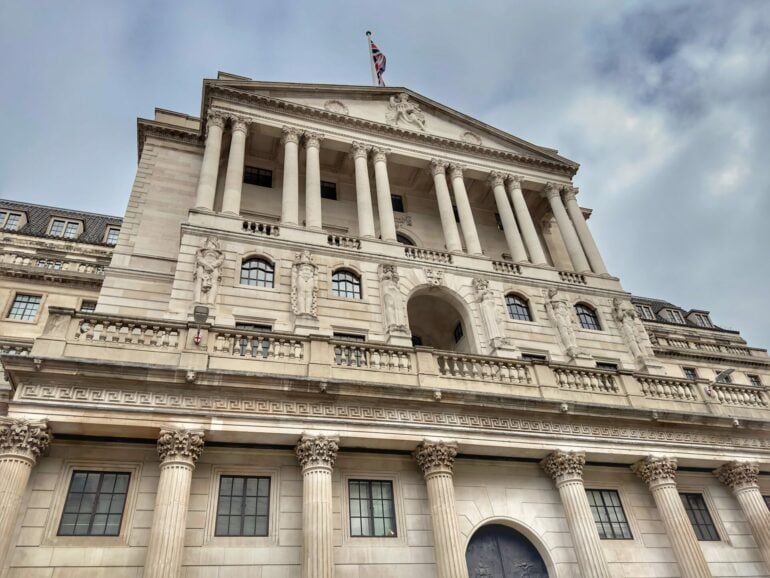A Bank of England rate cut in December is now “very likely”, according to Nigel Green, CEO of deVere Group, following the latest fall in UK inflation.
The Consumer Prices Index eased to 3.6% in the year to October, down from 3.8% in September.
At the same time, minutes from the Bank’s November Monetary Policy Committee meeting showed a narrow 5–4 vote to hold the Bank Rate at 4%, with four members preferring an immediate 0.25 percentage point cut.
Green said the combination of easing inflation and the MPC split points towards a shift next month.
He said: “When the Bank Rate shifts it transforms the baseline assumptions for cash, credit and capital alike.
“For savers, the implications will arrive quickly. Cash held in deposits and fixed-term products will earn less as reference rates decline.
“Savers who stay entirely in cash when inflation remains above target and interest rates are falling are likely to see real returns erode.
“With inflation still at 3.6% and deposit yields poised to move downward, the risk of negative real returns looms.”
He added that a rate cut would change the valuation environment for investors by reducing the discount applied to future earnings.
Green said: “A policy-step of this kind lifts the value of future cash flows. The early adopters in such environments stand to benefit; those who cling to yesterday’s assumptions may be late to the party.”
He said long-duration equities, infrastructure, real estate and selected credit typically attract interest at the start of an easing cycle, though fundamentals and timing still matter.
Green noted that the wider economic backdrop supports a shift, with the Bank judging inflation to have peaked and reporting growing slack in the labour market alongside moderating wage growth.
He said weak growth, subdued consumption and muted business investment all “align with a rate-cut narrative”, adding: “We believe that there’s now a high probability of a Bank of England December rate cut.”
He said savers need to review their holdings as deposit rates fall, while investors should prepare for re-pricing ahead of the decision.
Green said: “Cash remains necessary for short-term needs, but surplus funds should be directed where real yields can recover ahead of inflation.
“Lower rates alter the framework, but they don’t replace rigorous selection. The re-pricing begins when a cut is expected, not when it happens.
“Those who wait may see the move priced in ahead of them.” He also warned that a UK rate cut could weaken sterling and influence international holdings and export-sensitive businesses.
Green concluded: “The likely December rate reduction by the Bank of England marks a transition point. For savers, this means challenge; for investors, it means opportunity for those who act with insight.”



